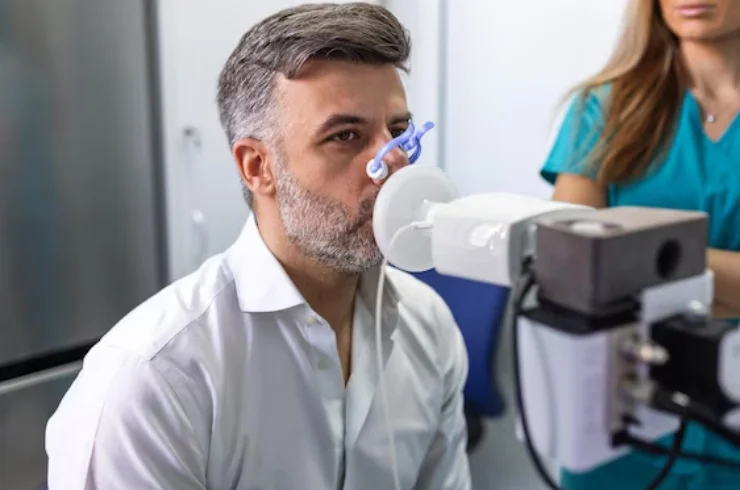Spirometry/PFT

Spirometry and Pulmonary Function Tests (PFTs) are diagnostic tools used to assess lung function and diagnose respiratory conditions.
Spirometry:
Spirometry is a type of pulmonary function test (PFT) that measures how much air a person can inhale and exhale, and how quickly they can do so. It is the most common and simplest of all PFTs. During the test, the patient is asked to breathe into a device called a spirometer, which records the amount and speed of air entering and leaving the lungs. Key measurements include:
- Forced Vital Capacity (FVC): The total amount of air a person can forcefully exhale after taking a deep breath.
- Forced Expiratory Volume in 1 second (FEV1): The amount of air a person can forcefully exhale in the first second of the FVC test.
- FEV1/FVC Ratio: A ratio that helps identify obstructive or restrictive lung diseases.
Pulmonary Function Tests (PFTs):
PFTs are a broader category that includes spirometry but also other tests to evaluate lung function more comprehensively. These tests may include:
- Lung volumes: Measures the total amount of air in the lungs and how much remains after exhalation.
- Diffusion capacity (DLCO): Measures how well oxygen moves from the lungs into the bloodstream.
- Plethysmography: A test that measures lung volume by using a sealed chamber to assess the amount of air in the lungs.


